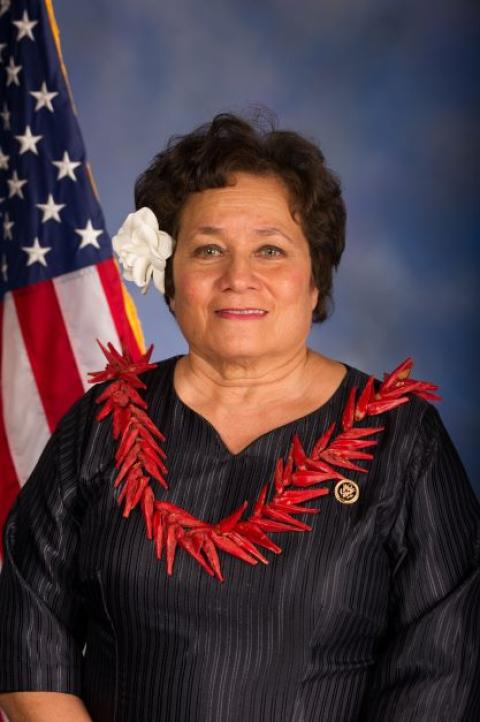POLITICAL STATUS
American Sāmoa is the only United States possession south of the equator and the only Polynesian territory among the five inhabited territories. Although it has been occupied by Samoans for over three millennia, the Samoan archipelago was split politically by European powers in 1899 through the Tripartite Convention. The western part of the islands (ʻUpolu, Savaiʻi, Manono, ʻApolima) were claimed by the German empire and the United States claimed the eastern half (Tutuila, Aunuʻu, Manuʻa).
The U.S. had won the Spanish American war and acquired other territories such as Puerto Rico, the Philippines, and Hawaiʻi in the previous couple of years through conquest and colonization. And although Samoans were not consulted in the Tripartite Convention, the chiefs of Tutuila and Manuʻa signed their own Deeds of Cession in 1900 and 1904, respectively. They had essentially signed what they thought would be a treaty that would grant protection for Samoans and the preservation of their land and culture. Although this "treaty" was never activated by Congress, American Sāmoa would be placed under control of the United States Navy and a naval administration would govern the territory for the next several decades.
American Sāmoa would not receive an elected civil government until a constitutional convention was called and a constitution was promulgated in 1960 and revised in 1967. The Territory sends a non-voting delegate to Congress, the only form of representation it has in the national legislature. And although they cannot vote in the House of Representatives, they can exert influence and vote in committees.
Today, there are fewer than 50,000 residents in American Sāmoa, most of whom about 90% are Indigenous Samoans. Its political status is complex and is often labelled as an "unincorporated" and "unorganized" territory:
- "Unincorporated" in that it is not incorporated into the Union as a state.
- "Unorganized" in that it does not have an organic act enacted by Congress to establish its territorial government.
Residents of American Sāmoa are born not as U.S. citizens, but are considered U.S. "nationals," a designation only found in American Sāmoa, whose government is set up and administered by the Department of the Interior rather than through an organic act established by Congress.
This means that it is not fully considered a part of the United States in some areas. This is largely determined by the federal government, where it be Congress or the courts.
INTERVIEWEES
The following experts will be interviewed during their current (and previous) capacities in the American Sāmoa government. They provide a wealth of knowledge and experience about American's history and political status. They will contextualize background knowledge of the Territory within the social, political, and economic movements and motives that shaped the formation of the government and its response to current issues within and outside the realm of the law and the politics shaping the current climate in the Territory.

Lt. Gov. Talauʻega Eleasalo ʻAle (D)
Lt. Governor Talauʻega was Attorney General of American Sāmoa from 2014-2020, a time when the citizenship debate was highly contested in the courts. He will be interviewed on his thoughts about American Sāmoa's current political status and its legal status in the courts. He has provided testimony before national and international bodies on American Sāmoa's position on its political status. His voice is important in contexualizing the Territory's relations with the federal government and international agencies like the United Nations.

Uifaʻatali ʻĀmata Radewagen (R)
Uifaʻatali is the current Delegate to Congress for American Sāmoa. She is the Territory's only elected representative in the House of Representatives. Although she cannot vote on the House floor, she plays a critical role in advocating for American Sāmoa's interests in the national legislature. She was a prominent figure in the citizenship cases and offers insight into why she has consistently fought against it - on behalf of her constituents' wishes. She offers insight into her initiatives in Congress on expediting citizenship for Samoans stateside.

Tapaʻau Dr. Daniel ʻAga
Tapaʻau is the Director of the Office of Political Status and Constitutional Review. His office is tasked with research and education, especially in relation to development of policies affecting the political status and relations with the federal government. He will be interviewed on his expertise on the history of American Sāmoa's political relationship to the United States. He will reflect on the constitutional conventions that were set in convened to discuss and develop American Sāmoa's government, especially in relation to protecting Indigenous institutions. He will also discuss the potential impacts of the U.S. Constitution on local provisions and policies that sustain the current mechanisms set in place to protect Samoans' human, civil, and Indigenous rights.
NOT FULLY AMERICAN
Does the U.S. Constitution Follow the Flag in American Sāmoa?
